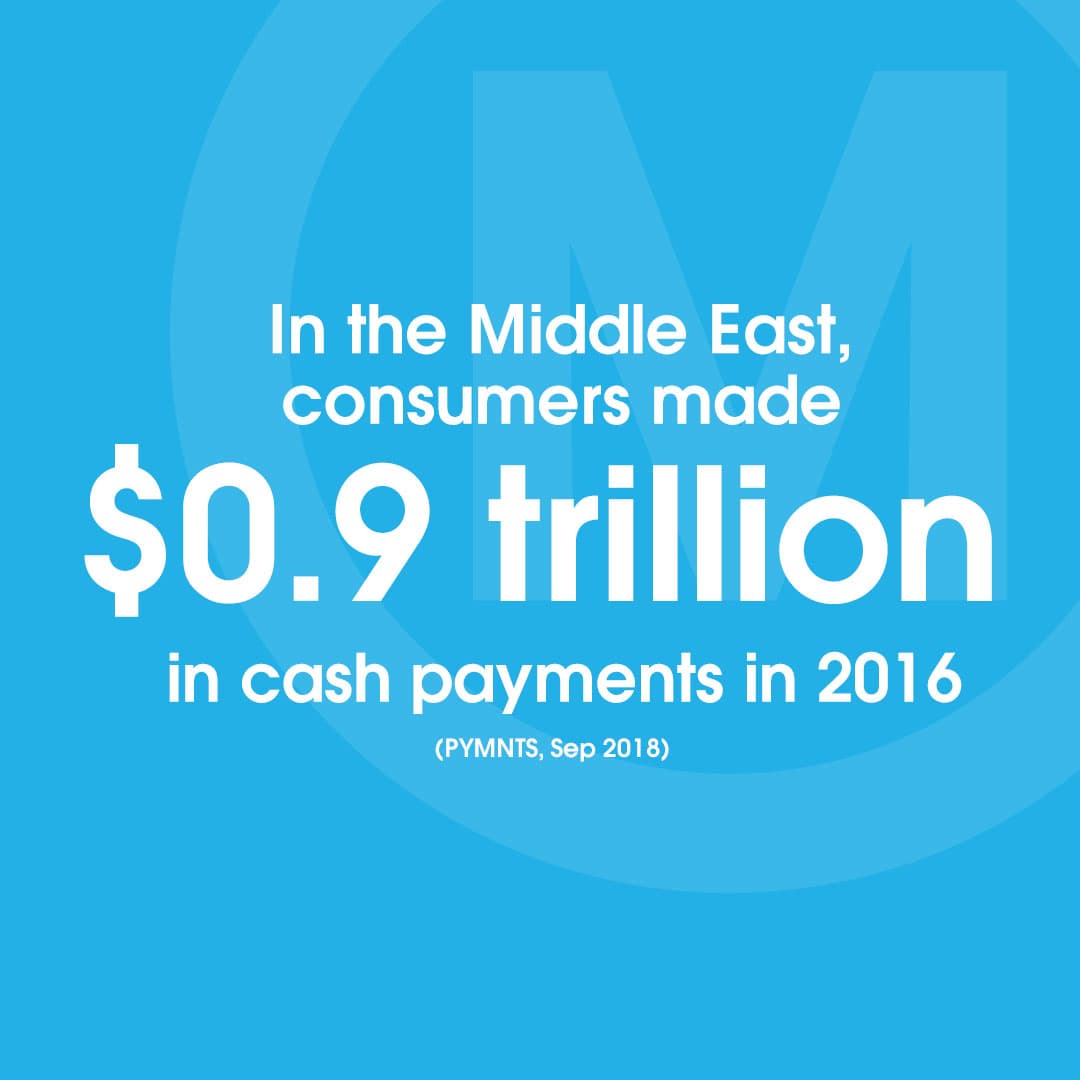
Cash plays an imperative role in the Middle East, finds Global Cash Index™
The new PYMNTS Global Cash Index™, a Cardtronics collaboration, finds that cash continues to play an imperative role in the Middle East and South Africa.
The examination on payments across the largest economies within the report's selected regions (Turkey, South Africa and Saudi Arabia), concludes that consumer behavior is an essential factor.
With the undeniable growth of digital payments, the cash share in each country is expected to go down by 2021. However, cash usage is expected to go up (p. 5). The report also finds that having access to ATMs has actually helped connect people to the global financial ecosystem without lowering their cash use (p. 6).
Key Findings
- Cash share accounted for 60 percent of South Africa’s gross domestic product (GDP), as well as 37.5 percent of Saudi Arabia’s GDP. (page 3)
- Overall, the Middle East’s GDP is expected to grow 12 percent between 2016 and 2021.
- In 2016, Middle Eastern consumers made $0.9 trillion in cash payments. This is expected to rise to $1.4 trillion by 2021.
- Seventy-five percent of adults in South Africa now possess bank accounts, compared to just 60 percent of adults in Turkey.
Saudi Arabia's cash use can be influenced by the expected turbulence of a nation basing its economy on oil prices. Because of this, 'consumers generally feel more comfortable with paper currency on hand' (p. 9).
In South Africa, on the other hand, increases in robberies have contributed to businesses adopting electronic payments. Yet, cash is cemented in South African payments and is even predicted to grow in the next three years (p. 11).
Turkey is also seeing an increase in card usage and yet, is expected to see an increase in cash use. The combination of a young tech-savvy generation and up to 40% of the population is unbanked, access cash alternatives and cash itself continues to be very much in demand, particularly for small, everyday payments (Featured Story, p. 19).
Overall, consumers seem to be increasing their usage of digital spend management tools for other financial needs. When it comes to making day-to-day payments, however, they continue to favor cash over digital alternatives (p. 2).
“Cash usage is also very popular for the unbanked population [...]. For example, people in rural areas [who] work as farmers. They always prefer [to use] cash because they’re living in a shadow economy, in a gray economy.”
Overall, consumers seem to be increasing their usage of digital spend management tools for other financial needs. When it comes to making day-to-day payments, however, they continue to favor cash over digital alternatives. (p. 2)
Despite the influx of mobile banking and payment options, plastic card use, and a focus on financial infrastructure, cash remains heavily cemented in the Middle Eastern and African economies. Reliance on cash is particularly ingrained in the unbanked and rural populations of these regions, with consumers still reaching for cash to pay for daily transactions.
This is not to say that other payment methods are not seeing growth in adoption. These tools are particularly gaining popularity. Saudi Arabia and Turkey are seeing the number of plastic cards in circulation increase, with Turkey now one of the largest card markets in the region.
However, despite new sources of competition, cash continues to be an imperative payment method. Indeed, part of the reason cash is still so popular for consumers is because it’s familiar and reliable against other factors, such as the fluctuation of oil prices in Saudi Arabia, which is a notoriously volatile market.
About PYMNTS
The PYMNTS Global Cash Index™, a Cardtronics collaboration, focuses on the use of cash as a payment method that equally plays a role with cards, checks, direct debit and other methods of settling up between consumers and businesses. Unlike most reported estimates of cash, this proprietary data analysis focuses on the use of cash for making payments, rather than on cash as an economic safety.

